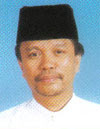Thai prime minister declares emergency in capital
BANGKOK, Thailand (AP) — Thailand's prime minister declared a state of emergency in the capital Bangkok on Tuesday after a week of political tension exploded into violent street clashes between supporters and opponents of the government that left one person dead.
Under sweeping powers that give the military the right to restore order, authorities can suspend certain civil liberties, ban all public gatherings of more than five people and bar the media from reporting news that "causes panic."
The military, which has staged 18 coups since the country became a constitutional monarchy in 1932, said the army did not want to step into the crisis but if it had to, it would not use force against the public.
Prime Minister Samak Sundaravej was confronted with another threat Tuesday when the Election Commission recommended his People's Power Party be disbanded for electoral fraud during December elections. Samak and other top party leaders would be banned from politics for five years if the ruling is upheld by judicial authorities, though members could form a new party and retain power by winning new elections.
Samak gave no timeframe for how long the emergency decree would stay in effect but said it would be over "moderately quickly."
"I did it to solve the problems of the country," Samak said in a televised news conference at a military headquarters in Bangkok. "I had no other choice. The softest means available was an emergency decree to end the situation using the law."
The overnight violence heightened a national crisis that started a week ago when thousands of opponents of Samak occupied the grounds of his office and refused to move until he resigned.
The right-wing People's Alliance for Democracy accuses Samak of being too close to ex-Prime Minister Thaksin Shinawatra and of trying to change the constitution to help him avoid prosecution on corruption charges. Thaksin was ousted in a 2006 coup and recently fled to Britain to escape an array of corruption charges. The same group organized the massive anti-Thaksin demonstrations in 2006 that helped spark the bloodless coup.
Many of the same issues — corruption, stifling the media and the ruling party's buying votes from the rural poor with cash and other benefits — have come to dominate the protests against Samak.
The alliance and their sympathizers — a mix of royalists, the urban elite and union activists — complain that Western-style democracy with one-man, one-vote gives too much weight to Thailand's rural majority, who protesters say are susceptible to vote buying that breeds corruption. They have proposed a system under which most lawmakers would be appointed rather than elected.
The prime minister has repeatedly insisted he will not bow to pressure by resigning or dissolving parliament to call new elections.
Samak declared the state of emergency after a week of protests turned violent overnight.










